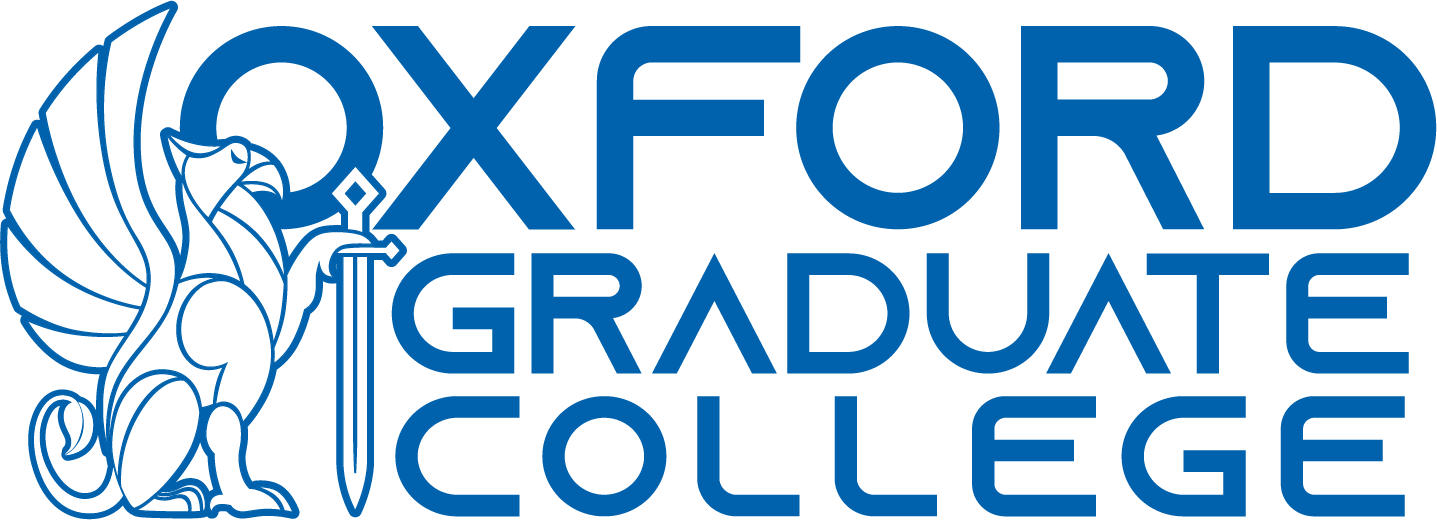
PROGRAMME SPECIFICATION
NAME OF PROGRAMME:
GRADUATE DIPLOMA- LOGISTICS & SUPPLY CHAIN MANAGEMENT
Philosophy
The Graduate Diploma in Logistics & Supply Chain Management Logistics offers highly structured and robust approach to decision making in supply chains. This program will develop skills for the professional to optimize organization profitability through effective management of supply chain. The program will help the participant to sharpen their skill and to leverage the advantage of the proper supply chain. Logistics and supply chain management are critical to the success of both manufacturing and service industries, be it global or domestic in scale. It encompasses the functions of procurement, production, distribution, transport, and customer services, with a diverse range of management styles and structures.
The Graduate Diploma in Logistics and Supply Chain Management qualification is to broaden learners’ understanding of logistics and supply chain management and is designed for those who wish to prepare for a first professional role and future career in the field. It is also suitable for logistics and supply chain professionals in the early stages of their career looking to enhance their knowledge and skills and move to the next level professionally.
Information on Award
| Final Award | Graduate Diploma- Logistics & Supply Chain Management |
| Programme Title | Graduate Diploma- Logistics & Supply Chain Management |
| LEVEL | 6 |
| Duration of Course | 15 Months |
| Entry Requirements | Applicants must:
· Possess at minimum any related Associate Degree in the relevant field. · EDUQUAL Level 5 Diploma · RQF/QCF/NQF Level 5 Diploma · SCQF Level 8 Diploma · EQF/FHEQ Level 5 Diploma · Be at least 21 years of age
|
| TOTAL QUALIFICATION TIME (HOURS) | 1800 |
| CREDITS | 180 |
| Major pathways within the course – Where course can lead to different areas of emphasis | Completion of the course can encourage participants to pursue further studies into:
|
| Targeted occupations for graduates | After completion of the course, graduates can serve in organisations in positions as:
· Team leaders · Supply Chain Planner · Production Planner · Production Operative, Supervisor, or Manager · Purchasing Manager · Production Warehouse Manager |
Programme Aims
| The main aims of the Graduate Diploma in Logistics & Supply Chain Management are to: | · An in-depth theoretical background in the areas of supply chain and operations management including in international contexts.
· A systematic understanding of various analytical, strategic and decision supporting methods. · Critical thinking skills and the ability to identify the opportunities and risks facing supply chains. · Educate you as a manager and logistics specialist to operate in coordinated, multi-enterprise organisations and thus improve the quality of management as a profession.
|
The Learning Outcomes
| On completion of this program, participants should be able to:
|
· Be up-to-date on key innovations within supply chain management and global logistics, including analytics and advanced technology usage.
· Appraise, and evaluate the relevance of particular supply chain management strategies for differing supply chain scenario, including sustainable and humanitarian supply chain strategies. · Have a critical understanding of the major challenges faced in implementing integrated supply chain management strategies, as well as approaches for meeting these challenges. · Evaluate and appraise logistics and operations measures to improve efficiency and effectiveness in supply chain networks. · Critically understand the key elements of information systems that link organisations and supply chain networks together. · Develop effective logistics and supply chain solution and implement it into real-life cases. |
Programme Structure and Requirements
| UNIT TITLE | STRATEGIC LEADERSHIP |
| TQT (Hours) | 200 |
| UNIT AIM & SUMMARY | This unit provides an in-depth understanding of the key principles and practice of leadership This will enhance the individuals’ knowledge, skills and attributes to effectively engage in the role and responsibilities required of an effective team player and leader of a team; being proactive in innovation and improvement to inform strategy and business planning within the organisation. |
–
| UNIT TITLE | PROJECT AND LOGISTICS MANAGEMENT |
| TQT (Hours) | 200 |
| UNIT AIM & SUMMARY | The aim of this unit is to allow the learner to understand concepts of portfolio management and the associated features. The value of having a Project Management Office will also be examined and the stages of establishing and effective project management office will be considered. Learners will also examine the supply chain ecosystem and review IT frameworks appropriate for logistics and supply chain complexities. |
–
| UNIT TITLE | BUSINESS LAW |
| TQT (Hours) | 200 |
| UNIT AIM & SUMMARY | Business law influences almost every aspect of corporate and working life; from protection of physical and financial wellbeing, to enforcement of rights and responsibilities within the workplace. This unit aims to provide learners with an academic and practical awareness of these laws and to develop the skills necessary to operate legally within an increasingly litigious business environment. Aim of this unit is to introduce the importance of law in businesses and organisations including main features of English Legal systems, contract laws, sales of goods acts and credit transactions as well as intellectual property law. This unit will develop analytical skills in law and encourages their application to business contexts. |
–
| UNIT TITLE | E-BUSINESS |
| TQT (Hours) | 200 |
| UNIT AIM & SUMMARY | This unit aims to develop students’ abilities to analyse and evaluate e-business applications, as well as design e-business models. We focus on the strategic, managerial, operational and technical factors in the development of an organisation’s e-business competencies and capabilities. We investigate current business and technology trends including the individual, business and societal implications of e-business. The course makes extensive use of current case studies and gives students the opportunity to design new e-business models and applications. The world of business is undergoing a radical change. Trends in market place competition on one hand and the advent of the Web on the other hand, have created a brand new landscape within which business is conducted. e – Business enterprises conduct themselves using agile and flexible business models and processes, transform themselves continuously to meet challenges and opportunities, participate in opportunistic alliances and virtual organisations. |
–
| UNIT TITLE | GLOBAL LOGISTICS AND SUPPLY CHAIN MANAGEMENT |
| TQT (Hours) | 200 |
| UNIT AIM & SUMMARY | This unit aims to allow the student to develop an appreciation of the issues to be addressed when dealing with the complexities of managing the global sourcing of materials and components, the globalisation of manufacturing operations, and meeting the needs of the global customer. |
| UNIT TITLE | STRATEGIC PROCUREMENT |
| TQT (Hours) | 200 |
| UNIT AIM & SUMMARY | This unit aims to provide student’s understanding of how procurement strategy is developed in business. The unit provides a special emphasis on the development and management of strategic sourcing relationships and promotes an understanding of the strategic role of supply management in effective supply/demand/value chain operations. |
–
| UNIT TITLE | SUPPLY CHAIN PLANNING AND CONTROL |
| TQT (Hours) | 200 |
| UNIT AIM & SUMMARY | The aim of this unit is to introduce students to the various elements that comprise the field of supply chain planning and control. The unit also aims to give student an understanding of role of the planning and control within an organisation and the outward impact this has on aspects of the supply chain. |
–
| UNIT TITLE | FINANCE |
| TQT (Hours) | 200 |
| UNIT AIM & SUMMARY | The unit aims to will examine how people make predictable and repeatable mistakes in financial decision- making. This unit introduces the fundamental concepts of finance theory and tools of financial Decision-making in the context of the institutional environment. |
–
| UNIT TITLE | INTERNATIONAL LOGISTICS MANAGEMENT |
| TQT(Hours) | 200 |
| UNIT AIM & SUMMARY | This unit focuses on the strategic, value-adding role of logistics in supply networks. The unit aims to provide students with an understanding of all key areas within logistics from an international perspective. |
| UNIT TITLE | STRATEGIC MANAGEMENT |
| TQT (Hours) | 200 |
| UNIT AIM & SUMMARY | The aim of this unit is to examine the process of strategic management, analyse approaches to strategy formulation and examine approaches to strategy implementation. Strategic Management is an integrative capstone unit that seeks to provide a comprehensive look at organisations. Although it will draw upon many of the business courses that you have been exposed to, it does go beyond merely tying together the various functional courses you have had. This unit will also to develop learners’ understanding of strategic and change management models, as well as the ability to review strategic plans, to propose strategic options, to create implementation plans and to lead organisational changes. |
| Research Project | End Point Assessment |
| Description | A comprehensive research project encompassing all of the knowledge and skills gained throughout the duration of the programme. |
Information about Assessment Regulations
Completion of all assessments are mandatory in order to obtain an overall final grade for the unit. To be awarded the Graduate Diploma, a student will be assessed and graded on all assessments. The use of any of the following Assessment Methods may be utilised in the individual assessments
- Online quizzes
- Course Assignments
- Self-study assignments
- Portfolio
